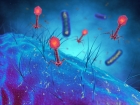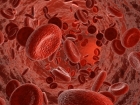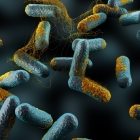Press monitoring
Building better bacteriophage to combat antibiotic-resistant bacteria
29.11.2019 | Press monitoring
Researchers are pursuing engineered bacteriophage as alternatives to antibiotics to infect and kill multi-drug resistant bacteria. The potential for an innovative synthetic biology approach to enhance phage therapeutics and the role a biofoundry can play in making this approach feasible and effective is discussed in an article in PHAGE: Therapy,...
Ultrasensitive protein method lets scientists ID someone from a single strand of hair
27.11.2019 | Press monitoring
A new forensic technique could have criminals – and some prosecutors – tearing their hair out: Researchers have developed a method they say can identify a person from as little as 1 centimeter of a single strand of hair – and that is eight times more sensitive than similar protein analysis techniques. If the new method ever makes it into the...
Promising new antibiotic discovered in worm gut microbiome
25.11.2019 | Press monitoring
We’re currently in dire need of new weapons against infectious bacteria, especially those in a tough-to-kill class known as gram-negative bacteria. Now, researchers at Northeastern University have discovered just that, hiding in the gut of a tiny, soil-dwelling, parasitic worm. Tests on mice have so far proved promising. The new antibiotic,...
In a first for cell biology, scientists observe ribosome assembly in real time
22.11.2019 | Press monitoring
A team of scientists from Scripps Research and Stanford University has recorded in real time a key step in the assembly of ribosomes – the complex and evolutionarily ancient "molecular machines" that make proteins in cells and are essential for all life forms. The achievement, reported in Cell, reveals in unprecedented detail how strands of...
Encouraging early results from first human CRISPR gene therapy trials
20.11.2019 | Press monitoring
Promising preliminary data from one of the first human trials testing the safety and efficacy of a CRISPR gene therapy has just been revealed. Although it is too early to evaluate long-term effects, the initial reports are impressively successful for two patients with severe genetic blood diseases. Until February of this year, when pharmaceutical...
How to make better biofuels? Convince yeast it is not starving
18.11.2019 | Press monitoring
Yeast already helps make bread and beer and cranks out the biofuel ethanol, but scientists believe it can be used to create an even more efficient fuel called isobutanol. Normally, yeast only creates a tiny amount of isobutanol. Now researchers at Princeton University have discovered a genetic switch that significantly ramps up ...
Better biosensor technology created for stem cells
15.11.2019 | Press monitoring
A Rutgers-led team has created better biosensor technology that may help lead to safe stem cell therapies for treating Alzheimer's and Parkinson's diseases and other neurological disorders. The technology, which features a unique graphene and gold-based platform and high-tech imaging, monitors the fate of stem cells by detecting genetic...
Bacteria being genetically engineered to locate buried explosives
13.11.2019 | Press monitoring
Raytheon is recruiting glowing microbes to help search for buried explosives. Being developed under a DARPA contract, the company is working with Worcester Polytechnic Institute to use synthetic biology techniques to produce two new strains of bacteria – one to seek out hidden explosives below ground and a second on the surface that glows when...
Drones used to release sterile insects to disrupt orchard pests
11.11.2019 | Press monitoring
Chris Adams and Larry Gut, entomologists in the College of Agriculture and Natural Resources at Michigan State University, are using large drones to release sterile insects as a more sustainable and cost-effective way to disrupt reproduction of codling moths, or CM, in apple orchards. CM is the principle apple pest that apple growers must control...
Tiny transporters could deliver treatment to stroke patients
8.11.2019 | Press monitoring
Swarms of nanoparticles which are 15,000 times smaller than a pinhead may be able to deliver vital drugs to the brain, offering new hope to patients in the early stages of a stroke. The research, carried out at The University of Manchester, shows that tiny vesicles called liposomes, just 100 nanometres in diameter can translocate through the...
































